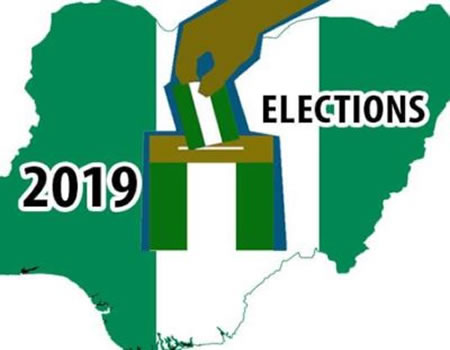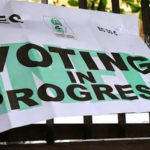THE presidential and National Assembly elections have been largely won and lost, but there are indications that another round of contests will move to the courtrooms presently. Whatever the outcomes of the expected legal contests, they cannot detract from the foibles of the main elections which gave rise to a cocktail of negative spin-offs, including the imminent courtroom disputations. As is common with elections in the country in recent times, the February 23 elections were, to say the least, poorly organised. They were hampered by logistic problems even after the one-week extension foisted on Nigerians by the Independent National Electoral Commission (INEC) hours to the scheduled February 16 elections. Nigeria is no doubt a vast country with huge numbers of registered voters, polling units and of course a large number of barely trained temporary election staff to help in the conduct of the elections, but that has always been the case and those challenges cannot be a tenable excuse for the observed shoddiness. In other words, the expectation was that lessons from the experiences of the previous elections and the deployment of improved technology should ordinarily result in the improvement of the current elections. But that was not the case.
Given the level of sloppiness that characterised the elections despite the one-week extension, it is now clear that the elections would have been a complete disaster if INEC had gone ahead to hold them as earlier scheduled. Again, even though somewhat localised, the elections were very bloody; they were far from being free and fair at least in locations where bloody confrontations took place. There were also reported cases of the malfunctioning of card readers and they were rather preponderant, leading to the disenfranchisement of voters in many parts of the country. Cases of ballot box snatching were reported and that is rather strange because it is unclear how the outlaws and their principals hoped to profit from such dastardly acts given the level of technology INEC claimed to have deployed to ensure that such electoral malpractices have no impact on the outcome of elections.
Nonetheless, it should be noted that unscrupulous politicians would not commission hoodlums to snatch ballot boxes if they would not benefit by so doing. The point we make is that INEC needs to re-examine the efficacy of the strategy and, more importantly, the proper implementation of the scheme it has put in place to obviate the consequences of ballot box snatching on the outcome of electoral contests. It is doubtful if the strategy is yielding optimal results. It is nonetheless interesting that accusations and counter accusations of electoral malfeasance cut across political parties and the pattern of the results of the elections announced by INEC tended to lend credence to the complaints. Overall, INEC needs to improve and it will be nice to begin to observe such improvements in the March 9 governorship/state houses of assembly elections. Violence and irregularities such as witnessed on February 23 should be substantially reined in.
On the flip side, it is indeed very commendable and gladdening that in spite of all of the observed lapses, the major political parties restrained themselves. The losing parties/candidates have decided to test the validity of the outcomes of the elections in the courts of law. That is the civilised way to go. Recourse to violence or self-help would have been wrong. This is a welcome development as it suggests that the political class may be inching towards the desired political maturity where the country comes before self or party. And on that score, we say kudos to those who have lost elections, even if temporarily, but are clearly unwilling to lose their country. Perhaps President Muhammadu Buhari deserves some commendation too, as he came across as being magnanimous in victory when he admonished his party members and supporters not to gloat or humiliate the losers. However, notwithstanding the affirmation of substantial credibility of the elections by some local and international observers even after admitting that they were fraught with localised violence and irregularities, the cases of bloodshed that accompanied the elections in parts of the country should be investigated.
In particular, cases of violence and killings in Rivers, Bayelsa and Lagos states should be probed in a most patriotic and dispassionate manner so that the culprits, especially those who killed, maimed, inflicted bodily injury or destroyed properties, can be prosecuted and punished to serve as a deterrent to perpetrators of electoral violence. Nigerians need not be put on the cliff edge any time there is an election.






